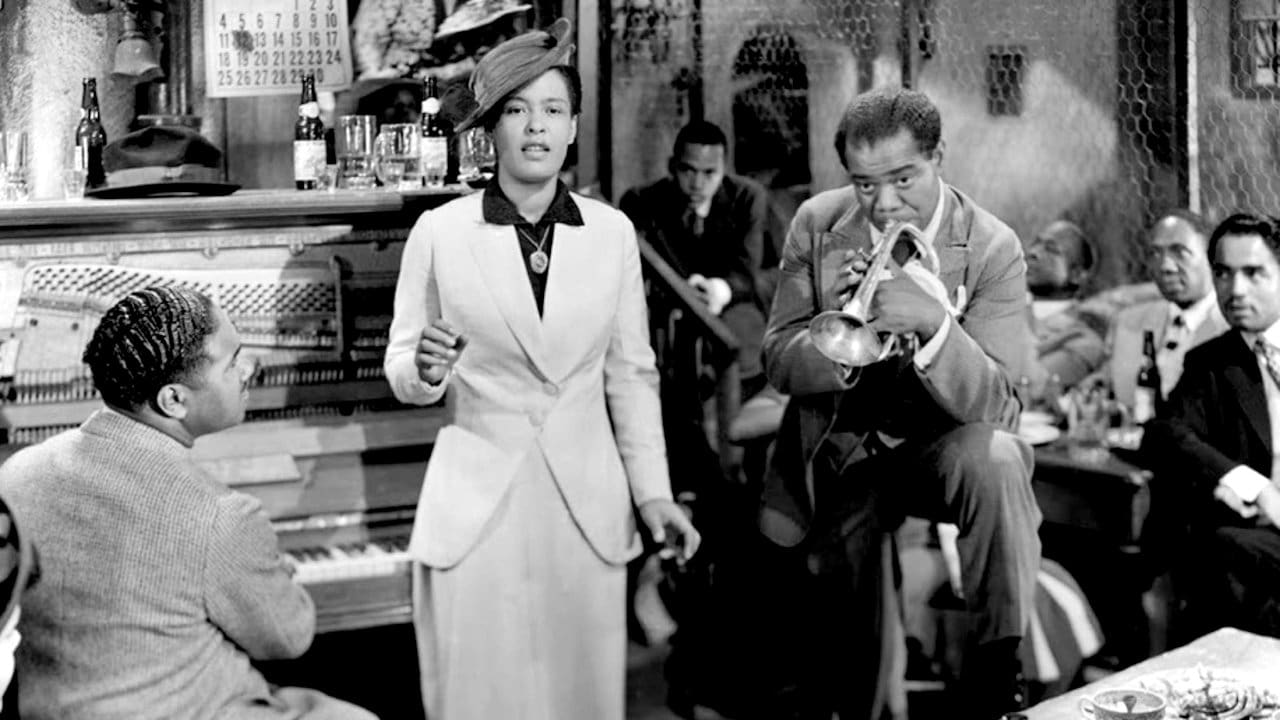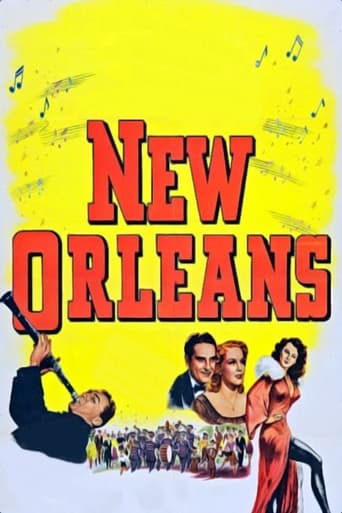

Louis Armstrong and his band (African American), along with Billie Holiday (African American and she plays a maid who just happens to also be a singer!) originate "jass" (later in the plot renamed jazz) in this film. The (white) club owner sponsors them--until he becomes a music manager and lo and behold--his big jazz act becomes Woody Herman and his band (all white). By the end, Billie Holiday, Satchmo, and the rest are replaced as crusaders for this new music by the blonde heroine of the movie (white), a full symphony orchestra (all white), and the Woody Herman band as symbols of the acceptance of jazz into proper American music circles. The movie ends with the latter crew triumphantly and oh-so-blandly performing a song they learned from Satch and the gang, although we never do find out what happened to them! That said, the movie is an important jazz history artifact--Satchmo and Lady Day and their fellow musicians are incredible.
... View MoreThis is a corny movie lets get that straight right off the bat. It is redeemed when Billie opens her mouth. If you never heard Billie Talk then this is the movie for you. She looks as if shes bored to death but what a job she does on, "Do you know what it means to miss New Orleans, The Blues Are Brewing and my favorite, Goodbye to storyville" Pops is pops and hes good as gold. But how this movie drags on! You will find yourself waiting for the scenes with Billie or Louis or the other jazz folk. The actress, Dorthy Patrick, I swear she never made another movie after this. At least i hope so! If you get this on DVD you luck up you get Billie and dukes symphony in black 1935 and a short with Louis. I guess that makes up for the awful film!
... View MoreI just saw this in January, 2005 so this is a different view. It's difficult to know how professional movie people wouldn't know this is a terribly acted movie. DeCordova reprises his previously cardboard acting although he has something, but it doesn't come out. But the music of Armstrong, Holliday, and Herman etc. is magnificent. It surely is worth the time just to revel in the 1947 jazz. Bad acting doesn't destroy the movie. Wonder what happened to all those actors. It must have been the directing for all to be so bland. I think the attempt is to make this an epic picture showing the intrusion of jazz into classical music. The voice sync with the singer is also poor enough to be disturbing to the viewer. Dorothy Patrick is lovely but apparently not a singer. It's fun to see many old character actors that I knew by looks but couldn't remember their names. I'm sorry DeCordova didn't work out because I liked him in "Frenchman's Creek."
... View MoreA fellow-jazz-fan in the US recently sent me this on video. I enjoyed it immensely. I can't pretend it's a good film. The story and its treatment are reminiscent of the straight bits in Marx Brothers films (the ones that had straight bits, that is). But instead of Groucho and Harpo, Louis Armstrong and Billie Holiday do their stuff, and bring the film to life.Plus points for jazz fans are that several of the numbers are seen and heard complete, rather than faded out; both Billie and Louis were still near their best; the other musicians, including Kid Ory and Barney Bigard, get to solo, and you hear -- and see - an early version of the Armstrong All-Stars really swinging. There's also a rare sight of the great (and now disappeared) Lucky Thompson behind Louis in one sequence.A personal note: one of my very first records (78 rpm, early 1950s) was Louis' "Where the Blues Was Born". I guess I had the studio, not the soundtrack version, but both are terrific. It was amazing to SEE that long-treasured performance."New Orleans" would not go down well with latter-day jazz musicians because Billie's shown as a maid, and Woody Herman (white) comes into the story for no earthly reason beyond the fact that he was a big name in 1947. But if you can see and hear past all that, the music makes it worthwhile.OK, it's not a good film. But how many jazz films are? "Jammin' the Blues," "Pete Kelly's Blues," "Sven Klang's Combo," "Round Midnight," and that's it. Only three of those are feature-length, and two are European. For anyone who loves the music, "New Orleans" is well worth viewing.
... View More